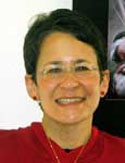Jackie Wald: A new journey in the Peace Corps
Jackie Wald of Dallas has served as a lecturer in Spanish in the Department of Foreign Languages and Literatures at SMU. She and her husband, Michael, have volunteered to serve in the Peace Corps in Panama for 27 months.
PANAMA — If it weren’t for the pain in my lower back and deteriorating knees, I’d feel like a 22-year-old. As a volunteer in Peace Corps Panama, I’m surrounded by young people. I can ignore the pesky irritations of middle age enough to keep up with them in training, hiking, swimming endurance and the like. I’m the only one who knows how my middle-aged body betrays me.
 Jackie Wald, now in the Peace Corps, writes about her experiences for Student Adventures. Read her blog. |
Mentally and emotionally, I also feel as though I’m going through a youthful rite of passage. As freshmen in college, we are thrust into a new and confusing world. Occasionally the cloud of confusion around us lifts, and we perceive things clearly. That is similar to Peace Corps. We are dropped into an alien environment. Language, customs, food, habits, resources, sights, tastes, sounds and smells — all are entirely new. The challenge of acclimating to a foreign culture and operating effectively within it seems insurmountable at times.
I teach English as a foreign language at a large high school in Santiago, Panama. I have to create my own curriculum. There are no textbooks. There is not a copy machine for teachers. My colleagues write on the board, and students copy everything into their notebooks.
Even many exams and quizzes are written on the board, and students write on their own paper. We can go to copy centers and pay 3 cents a sheet, which I often do, just to make sure all the students have the same information. The lack of textbooks, a language lab, a copy center or printers (at the few computers that do exist) is excruciating for me. But I must adjust and function within this different learning environment.
Before I left Dallas, people told me that my acclimation would be much easier and that I would be more readily effective than the younger trainees. Supposedly my life experience and seasoned perspective would give me a heads up over my fellow volunteers (some of whom were younger than my own children). That has not been the case.
We were all in the same place as we began training in Panama. The experience itself, with all its obstacles, is the equalizing force, no matter what one’s age. Sometimes it has been their fresh ideas, the exuberance of youth, their willingness to try new approaches that have inspired me.
So, do I mind that I was not the wise old sage they turned to for advice? Do I feel slighted that my decades of problem-solving have not given me an edge in achieving my goals? No. What I have come to conclude is that there are benefits to finding yourself at the very bottom of the road you must climb. The rewards of your efforts are sweeter when you have thrown yourself headlong into something completely new. Maybe that’s why the Peace Corps says it’s “the hardest job you’ll ever love.”
It energizes me to work alongside my fellow volunteers. We share the desire to make a difference through our projects and development work. It almost makes me feel 22 again. Now if I could just do something about my creaky knees…
!Jackie Wald of Dallas has served as a lecturer in Spanish in the Department of Foreign Languages and Literatures at SMU. She and her husband, Michael, have volunteered to serve in the Peace Corps in Panama for 27 months. Her e-mail address is jwald999@yahoo.com.
# # #